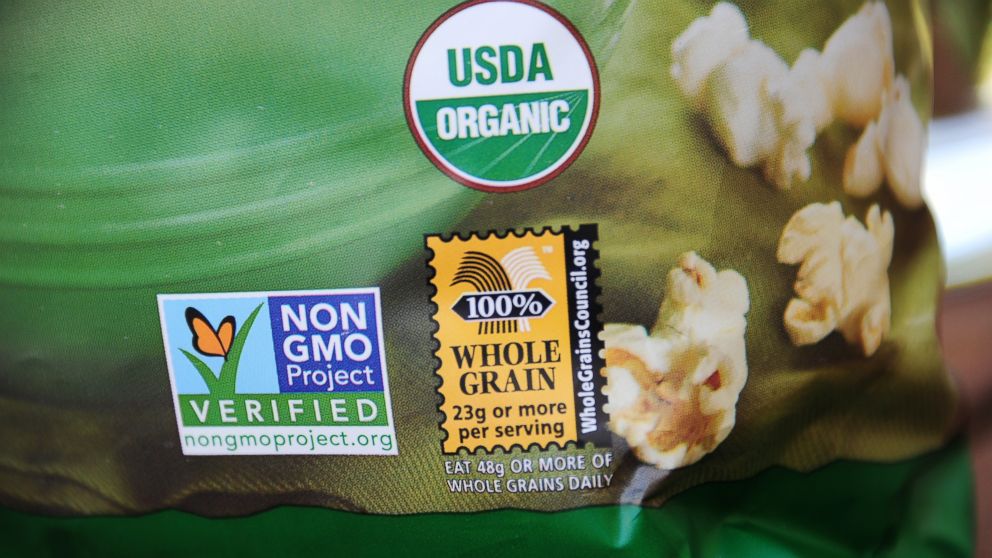How Your Grocery Trip Could Change If Congress Bans GMO Labels
The House took the latest step in the debate over GMOs in food.

— -- The House of Representatives has approved a bill that would block states from passing laws requiring manufacturers to label items that contain genetically modified organisms (GMOs).
Here’s a look at how your grocery shopping could change if the bill, officially named the Safe and Accurate Food Labeling Bill but nicknamed by opponents the “Deny Americans the Right to Know,” or DARK Act, is signed into law.
1. You won’t be able to check a label for GMOs.
The bill prevents states from each passing their own labeling laws, which supporters argue will keep agri-businesses from having different production processes that accommodate different state laws. How could this affect your bottom line? It would keep companies from passing on those added costs to price tags.
“The biggest cost of labeling has to do with segregation -- that is to say, ‘I’m going to try to make cornflakes for this market using one type of corn, and cornflakes for a different market using another type of corn,’” said Dan Sumner, a professor of agricultural economics at the University of California, Davis.
2. But you could spot non-GMO products.
While companies wouldn’t be required to disclose their products containing GMOs, they would have to get certified if they wanted a label that certifies their products do not contain GMOs -- meaning you’d still be able to spot those products easily at the supermarket.
There currently is no federal standard, although the U.S. Food and Drug Administration, U.S. Department of Agriculture and a coalition called the non-GMO Project all have ways to provide certification for non-GMO products. Supporters of the bill say this would mean shoppers avoid a patchwork of non-GMO standards.
“The bill establishes a national non-GMO certification program that provides clarity in a very loose labeling space right now where there is no GMO standard,” said Mike Gruber, VP of federal affairs for the Grocery Manufacturers’ Association, a leading advocate for the bill.
But opponents such as Scott Faber of the Environmental Working Group said this federal threshold, which would be established by the USDA, would actually be weaker than the existing voluntary standards.
“If this bill became law tomorrow, there would be two conflicting non-GMO seals in the marketplace,” Faber said. “Consumers would be even more confused than they are now.”
3. You might be able to figure out just what “natural” means on a package
Just what does it mean when a food label says “all-natural”? There actually isn’t a federal standard for that either, and this bill would require the FDA to change that.
“We don’t have the specific details -- those would be provided through the regulatory process -- but this does provide a framework to get some clarity on what is meant by the word ‘natural,’” said Ross Pifer, director for agricultural and shale law at Penn State’s Dickinson School of Law.
But Faber said his group is still concerned that the definition the FDA comes up with won’t exclude GMOs.
“Consumers overwhelmingly now believe that natural foods are GMO-free. That’s not the case. There’s no regulatory definition for natural and this bill would allow those claims to continue, although those consumers don’t understand it,” he said.




